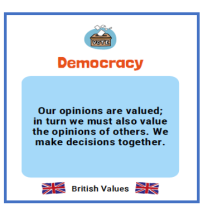Year 2
Spring 2, 2026
Welcome back we hope you have had a lovely half term break making memories and are ready for lots of learning and fun this half term in Year 2. We are really looking forward to teaching your children.
Start time – 8:40am Pick-up time- 3:15pm
If you have any questions, concerns or worries, please contact us at year2@cpa.dsat.education and we will do our best to respond as soon as we can.
Please ensure that your child brings a labelled water bottle to school each day as well as ensuring that all items of your child's uniform is clearly labelled too. A healthy fruit snack is provided for all our Year 2 children.
Year 2 Long Term Plan Year 2 Spring 2 Timetable
Please follow the links below to view information from Year 2 meetings.
Reading Information Meeting 2025
International Democracy day 15th September 2025
Well done to all the children in year 2 for their courage to deliver a fantastic speech. It was difficult to choose between you all! We are proud to announce that our Year 2 class School Council Representatives are: Luna and Luca S :)
Picture news
 "Picture News" is a UK-based educational resource that provides schools with weekly current affairs packs, featuring a relevant photo, a "big question," and teaching materials to help children discuss real-world events, develop critical thinking, and learn about British Values, respect, and empathy in an age-appropriate way, often linking home and school learning.
"Picture News" is a UK-based educational resource that provides schools with weekly current affairs packs, featuring a relevant photo, a "big question," and teaching materials to help children discuss real-world events, develop critical thinking, and learn about British Values, respect, and empathy in an age-appropriate way, often linking home and school learning.
Purpose of our PICTURE NEWS assembly at Canon Popham:
To make the world more accessible and understandable for children.
To develop speaking, listening, and vocabulary skills.
To foster independence, drive, and a passion for learning.
To build empathy and teach children to find their own voice.
PICTURE NEWS is delivered in a whole school assembly once a week with a thought-provoking question by class teacher throughout the school year. Each week in assembly, the children learn about an exciting or important story that has been in the news. They consider their responses to the story and are invited to feedback their thoughts. They reflect on each story and learn how they relate to British Values and Protected Characteristics - Equality.
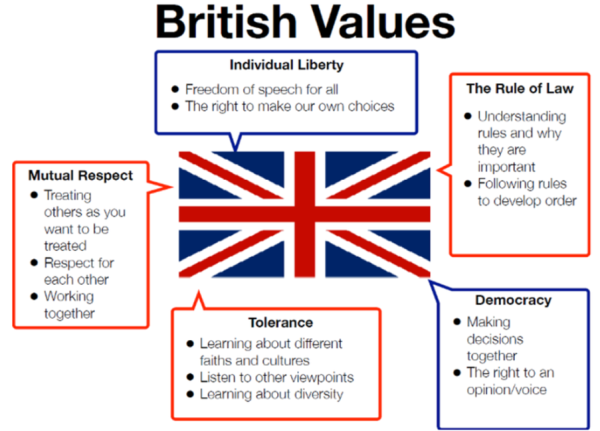
Reading

As a school we follow the Read, Write, Inc programme to deliver our phonics teaching. During this half term, we will continue to work hard embedding our knowledge of phoneme / grapheme correspondence, as well as continuing to segment and blend. We have lots of information on our schools phonics page.
For those children who have progressed from the RWInc phonics lessons, we will deliver whole class reading lessons which are taught in a similar style to KS2. We will focus on different skills each week (vocabulary, inference, predict, explain, retrieval and sequencing) and how to answer different styles of questions based on these. Children will focus on a class text each week and on a Friday will revisit a vipers skill and apply their learning to some questions with an unknown text.
Alongside reading, there are some words which children are expected to be able to read and write confidently by the end of year 2, which we call Common Exception Words. These are part of the statutory requirement for the year 2 spelling curriculum and are also known as sight words or tricky words because they are not spelt the way we would expect them to be spelt. Click on the link below to see the list of Year 1 and Year 2 Common Exception words. Please support your child in learning these.
Year 1 and Year 2 Common Exception Words
Writing
Our writing this half term will be based on the book 'Major Glad, Major Dizzy' by Jan Oke.
Major Glad, Major Dizzy is a story about two toy soldiers hidden beneath the floor of a London house in 1870, during the reign of Queen Victoria. As years go by, the children who once owned the toys grow up and have children of their own, and unknown to Major Glad and Major Dizzy, all kinds of changes happen above their heads until, when they are finally rescued 140 years later, the world they knew is almost unrecognisable.
In response to the book, we will engage in a variety of writing opportunities, including writing a description about a toy, a character description, a poem, instructions a letter and a diary. Our writing outcome is to write a diary.
Spelling

Children will begin following the Head-Start spelling programme this year, with a dedicated spelling lesson each day. Each week will follow the same format with an introduction to the weeks spelling pattern on a Monday, a writing words exercise on Tuesday, an activity applying the spelling pattern on Wednesday, Another writing words exercise on Thursday and a final activity to apply new knowledge on Friday.
Please click on the links below to see the spellings we will focus on over the year and also the spelling pattern rules which explains how we apply each spelling pattern (please note these are not in the same order as the spelling patterns taught through the Headstart scheme). Please help your child to practice a few of the spellings each week.
In addition to spellings, children in year 2 need to be able to read and write the year 2 common exception words which can be found in the link below. These words do not follow spelling patterns we just need to keep practicing to learn them.
Autumn term Spellings We are now working on Term 2 and will begin with week 6, Set 2 list a and Set 2 list b on Monday 23rd February 2026. Each week after will then follow on from this in weekly order with a set a and set b list each week.
Spelling pattern rules Year 2 Common Exception Words
Term 1 Spelling Overview Term 2 Spelling Overview Term 3 Spelling overview
Maths
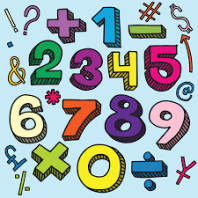
This half term we will be learning about:
'Addition and subtraction of 2-digit numbers' - In this unit we will be
'Money.' - In this unit we will focus on recognising the value of money, giving change and problem solving. We will explore how to create total amounts of money in different ways and count sets of money. We will explore the concept of change buying items and giving change in a customer/shopkeeper context.
'Shape' - In this unit we will focus on
Key Instant Recall Facts
This half term we will also be focusing on knowing and remembering our Key Instant Recall Facts (KIRFs). Please click on the links below for Year 2 Spring KIRFs that will support your child with their multiplication and division facts for the 10 times table. The online game link below, HIT THE BUTTON, will also support your child with key recall in many mathematical areas.
We are currently learning Spring 2 KIRFs
Year 2 Autumn term KIRFs Year 2 Spring term KIRFS
Hit the Button Odd and even song
Times Table Challenge
We will also be learning our times tables, particularly focussing on the 2, 5 and 10 times tables this year. Times table fluency is important and children now take a multiplication check in year 4 based on all the times tables from 1 to 12. Each week children will complete a times table challenge answering multiplication and division questions. The aim is to complete the award within 3 minutes and once achieved three times they will progress to the next level. Please see the links below for examples of our times table challenges. We will all start on the Bronze award and you will be notified each time your child has achieved an award and moved onto the new level. Please note that children are exposed to this from the start and regularly revisit how to answer the different styles of questions, but children may chose which questions they would like to answer and in which order they would like to develop their confidence in success.
Bronze Award Silver Award Gold Award
If you have any questions about these areas of Maths please don’t hesitate to come and speak to us.
Religious Education

Our RE Theme this half term is 'Easter'. In this unit, we will be exploring the question 'Why does Easter matter to Christians?” We will be exploring stories of Holy Week and Easter to make a link with the idea of Salvation (Jesus rescuing people). From our learning we will be able to give at least three examples of how Christians show their beliefs about Jesus as saviour in church worship.
Science
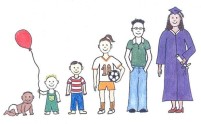
Our science theme this half term is 'Growing up – Animals including Humans In this unit, we will notice that animals, including humans, have offspring which grow into adults. We will find out about and describe the basic needs of animals, including humans, for survival (water, food and air) and describe the importance for humans of exercise, eating the right amounts of different types of food, and hygiene.
We will develop our scientific skills by:
Identifying and classifying
Using their observations and ideas to suggest answers to questions
Geography
Our Geography theme this half term is the United Kingdom. We will explore the question “What kind of place is the United Kingdom?” In this unit, we will study each country of the UK in more depth, identifying capital cities and key geographical characteristics. We will use our learning to produce a guide to the United Kingdom.
Design and Technology
 Our D&T theme this half term is 'Cooking and nutrition – a balanced diet'. In this unit, we will look at food groups and balanced meals. We will prepare and taste test ingredients, plan recipes and finally create and make our own healthy wrap.
Our D&T theme this half term is 'Cooking and nutrition – a balanced diet'. In this unit, we will look at food groups and balanced meals. We will prepare and taste test ingredients, plan recipes and finally create and make our own healthy wrap.
P.E.
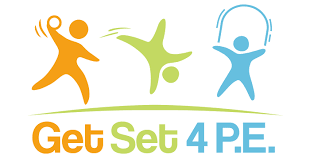
In PE, our theme is 'Net and wall games'. In this unit, we will develop our understanding of attacking and defending principles in net games such as using a ready position to defend our court and placement of a ball into space. We will use and develop skills such as throwing, catching, tracking and hitting a ball. We will also learn how to score points and to play to the rules. We will be working independently, with a partner and in small groups, whilst showing respect and kindness towards our teammates and opponents.
Our second theme is ‘sending and receiving’. In this unit, we will develop our sending and receiving skills including throwing and catching, rolling, kicking, tracking and stopping a ball. We will use equipment to send and receive a ball, working with different sized balls.
Our PE day is Tuesday afternoon. Please ensure that your child comes to school in their uniform and with the correct P.E kit in their bag to change into before their lesson. If your child wears earrings, these must be removed or provide tape to cover them. Please ensure long hair is tied back away from the face.
P.S.H.E.
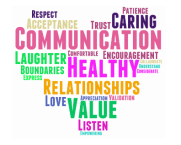
In our PSHE this half term we will be focussing on the theme ‘Money Matters’. In this unit we will be learning about how people make choices about how to spend or save their money, why it is important to keep track of what we spend, the difference between things we want and things we need and finally what happens when we go shopping including how advertising can affect our choices.
Computing 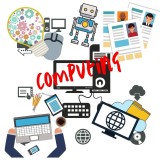
In our computing lessons this half term, we will focus on 'Information Technology'. We will learn about 'spreadsheets' where we will learn the basics of using spreadsheets with 2Calculate, focusing on how to enter, organise, and manage data in rows and columns. We will build confidence in formatting, carrying out simple calculations, using tools and creating block diagrams to present information clearly.
Music
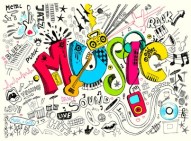
In music this half term we will be focusing on the theme 'Recognising different sounds' In this unit, we will be thinking about the question ‘How Does Music Teach Us About Our Neighbourhood?' When voices or instruments work together to play different pitches that sound at the same time, we can hear harmony in music! We will explore the voices and instruments used within the music in this unit to identify how and when harmony takes place. Singing and listening are at the heart of each lesson. We will play, improvise and compose on a glockenspiel using a selection of these notes: C, D, E, F, G
NUMBOTs – Every day 10 minutes
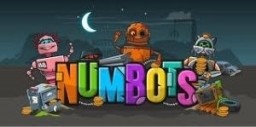
NUMBOTs is an on-line programme to boost addition and subtraction skills. It is available on a range of devices, including mobile phones. You can play online at NUMBOTs Game or download the NUMBOTs app. Playing little and often will significantly improve your child’s recall and understanding of number bonds and addition and subtraction facts. These are critical foundations in maths so we are excited by the impact NUMBOTs will have. In order to get the best out of NUMBOTs children should regularly play for short bursts of time over the week, there are 18 stages to complete!
If you have misplaced your log in details or are having trouble accessing the website, please email me to let us know.
READING – Every day 10 minutes
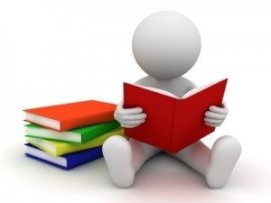
Please continue to enjoy your reading each day. Reading is fun and a great way to spend time together with your family, as well as developing our imaginations. Encourage your child to talk about what they have read and ask them a question or two about the book. This will help consolidate their comprehension work in school. Adults please remember to record what your child reads at home in their reading record. We will count all entries in the reading diaries weekly and award golden tickets to those who have read 15 times or more in a month.
Our book change day is Thursday.
As always, thank you for your continued support with your child’s learning.
Mrs Rowe, Mrs Jones and Mrs Barnes

